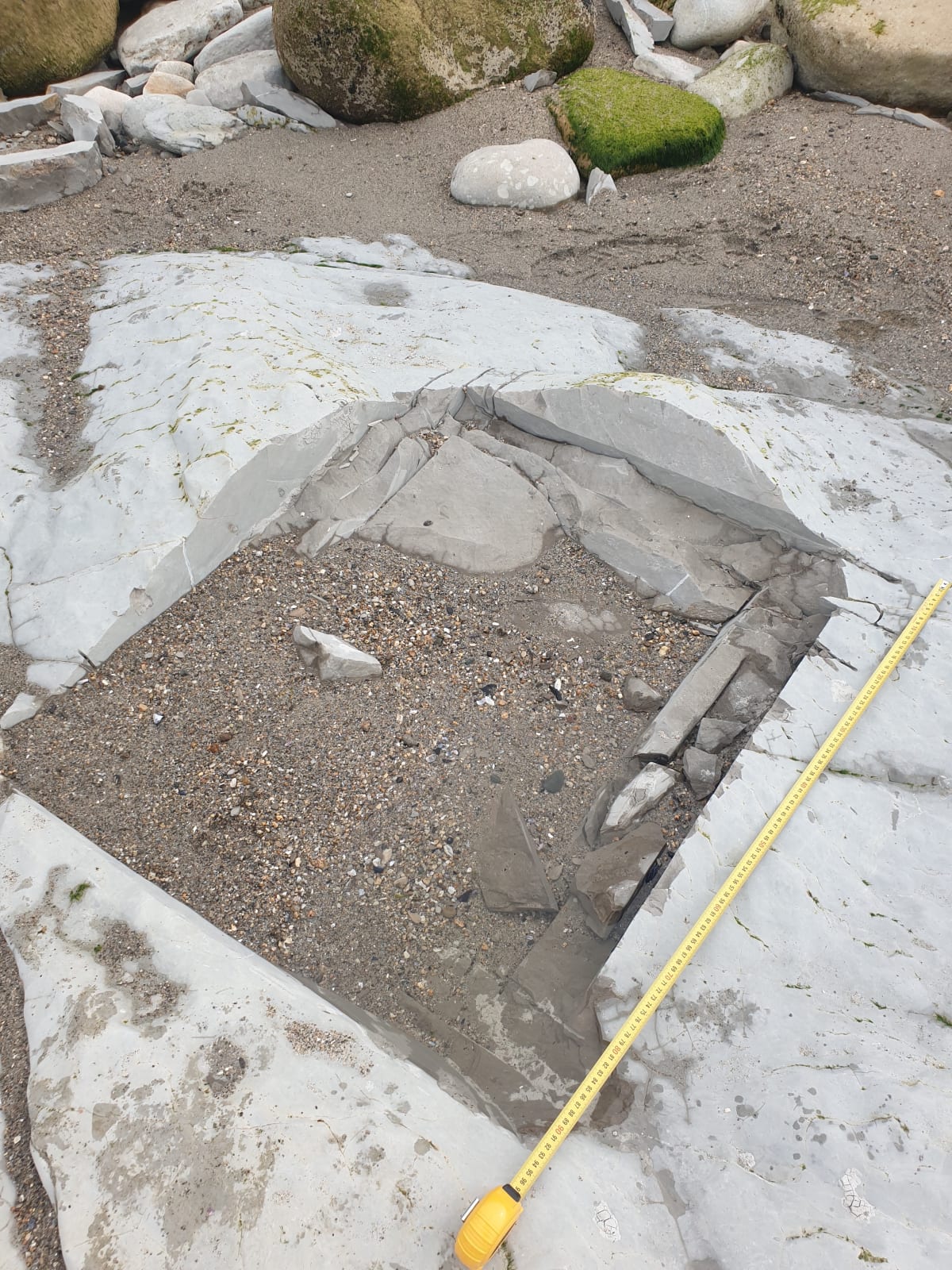
‘There are some things in nature that should be left alone and this was one of them’
West Coast Māori from whose whenua an ancient whalebone fossil was cut out of the seashore during the weekend say the people responsible did not have their blessing.
Francois Tumahai, chair of Ngāti Waewae runanga, says the fossil harvesters “did not have permission of our hapū to remove this taonga despite what they may have claimed”.
“As kaitiaki of the whenua, we are saddened by the desecration of this taonga. We are pleased police are investigating and we hope that those who did this will be held to account for their actions.”
Upset locals are meeting the police this morning to discuss their options after two men turned up last Sunday and hacked out a slab of rock containing the whalebone fossils from the Little Wanganui River mouth.
Their action has thrown the spotlight on the lack of statutory protection for such taonga.
Buller Mayor Jamie Cleine says the fossil’s removal from the Karamea community is an outrage and if it wasn’t illegal it should be. He says the large fossil was a well known local landmark.
“These people have just taken a rock saw to something that’s potentially 20 million years old and was treasured by the community and you can never put it back.
“It should be an offence to remove something like that - it’s a great shame.”
Just want it back
But local man Tom Horncastle, who tried in vain to stop the men taking the fossil, says recovery rather than prosecution is what he’s after.
“It’s been a special thing for generations of Karamea people. I was first taken to see it by my dad 60 years ago. I’ve taken youth groups to see it, all my grandchildren and school classes. They used to call it the monster rock. It was something special for us.”

The fossil takers identified themselves to Horncastle and were assertive about their right to take the taonga, though one falsely claimed to have iwi approval, he says.
“They were quite aggressive at first and they kept working on it all the time we were talking to them. The main guy promised to look after it and said it would probably end up in a museum like Te Papa.”
The two men had also cut out a second fossil, locals discovered later.
Market in fossils
Fossilised whale skeletons sold online are fetching good money, Horncastle says.
“They’re going for about $4000 - not a bad return for an afternoon’s work. Better than my bloody whitebaiting, that’s for sure.”
He will meet police this morning to find out what action, if any, can be take to recover the whale fossil.
“The fear is they intend to sell it. We don’t want to push for prosecution. We’d be happy just to have it back and kept in the Karamea museum.”
Prosecution could be problematic in any case, he says.
“It looks like there’s no real protection. If I want to take a log off the beach for milling I need a permit. But you can turn up and chip out a fossil and that’s okay. You just can’t send them out of the country.”
Fossils under the radar
The Ministry for Culture and Heritage says based on what is known about the Karamea fossil it would qualify as a protected New Zealand object.
But the Protected Objects Act controls only the export of fossils, not their collection, and has no power to compel the return of the taonga.
The fossil takers could, however, be pinged for using a power tool if the West Coast Regional Council chooses to take action.
Its coastal plan says nothing specific about fossils, but forbids the use of “mechanical means” to take stone and other materials from the marine environment without consent.
“They were using a big rock saw, a chain saw, and technically they were damaging the seabed because it was right at the mouth of the river,” Horncastle says.
Council staff are working with other agencies to see if any rules have been broken.
Council chair Allan Birchfield says he wouldn’t want to interfere with the freedom of people to explore and collect items from nature, such as fossils and gemstones.
But Horncastle says Karamea people are mourning the loss of an ancient treasure that’s been a touchstone for generations.
“There are some things in nature that should be left alone and this was one of them.”
Made with the support of the Public Interest Journalism Fund








